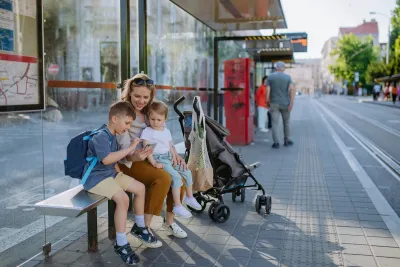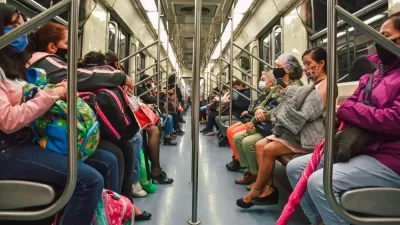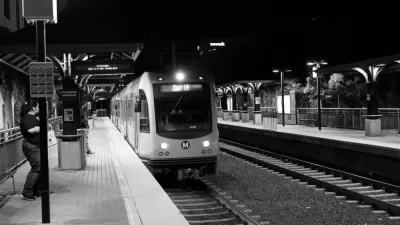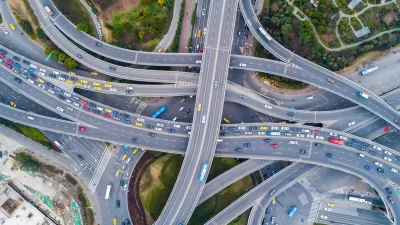‘Mobility hubs’ aim to make urban travel easier by connecting travel modes. Adding more services could make them more accessible and useful to women and families.

“The ‘mobility hub’ — or a central location where travelers can connect with multiple shared modes — is a buzzy transportation planning concept that's been inspiring articles and studies for years,” writes Kea Wilson in Streetsblog USA.
But do these trendy sites effectively serve women and caregivers? According to a Swedish and American research team, there is no concrete evidence of how these spaces support these groups, and workshops and surveys with women who use transit hubs revealed “a universe of invisible needs” that go largely unaddressed.
It is common knowledge that women tend to make shorter and more frequent “chained” trips; “They also perform a raft of invisible labors that aren't reflected on typical travel surveys, which tend to focus on destinations, distances, and time spent in transit, rather than the underlying reasons why people move — and the largely uncompensated work they need to perform along the way.”
The researchers found that women surveyed would benefit from services at mobility hubs such as playgrounds next to bus stops to occupy children or free WiFi so they can communicate or attend to errands while waiting for a bus or train. “If designers think creatively, mobility hubs can help alleviate the burden of other forms of unseen labor, too, like helping caregivers perform the ‘labor of hosting’ by popping up a holiday market stall on the sidewalk right next to the bikeshare stand, saving them a lengthy trip to buy gifts.”
FULL STORY: Do Women and Caregivers Need More From The ‘Mobility Hub’?

Alabama: Trump Terminates Settlements for Black Communities Harmed By Raw Sewage
Trump deemed the landmark civil rights agreement “illegal DEI and environmental justice policy.”

Study: Maui’s Plan to Convert Vacation Rentals to Long-Term Housing Could Cause Nearly $1 Billion Economic Loss
The plan would reduce visitor accommodation by 25% resulting in 1,900 jobs lost.

Planetizen Federal Action Tracker
A weekly monitor of how Trump’s orders and actions are impacting planners and planning in America.

Waymo Gets Permission to Map SF’s Market Street
If allowed to operate on the traffic-restricted street, Waymo’s autonomous taxis would have a leg up over ride-hailing competitors — and counter the city’s efforts to grow bike and pedestrian on the thoroughfare.

Parklet Symposium Highlights the Success of Shared Spaces
Parklets got a boost during the Covid-19 pandemic, when the concept was translated to outdoor dining programs that offered restaurants a lifeline during the shutdown.

Federal Homelessness Agency Places Entire Staff on Leave
The U.S. Interagency Council on Homelessness is the only federal agency dedicated to preventing and ending homelessness.
Urban Design for Planners 1: Software Tools
This six-course series explores essential urban design concepts using open source software and equips planners with the tools they need to participate fully in the urban design process.
Planning for Universal Design
Learn the tools for implementing Universal Design in planning regulations.
Caltrans
Smith Gee Studio
Institute for Housing and Urban Development Studies (IHS)
City of Grandview
Harvard GSD Executive Education
Toledo-Lucas County Plan Commissions
Salt Lake City
NYU Wagner Graduate School of Public Service





























